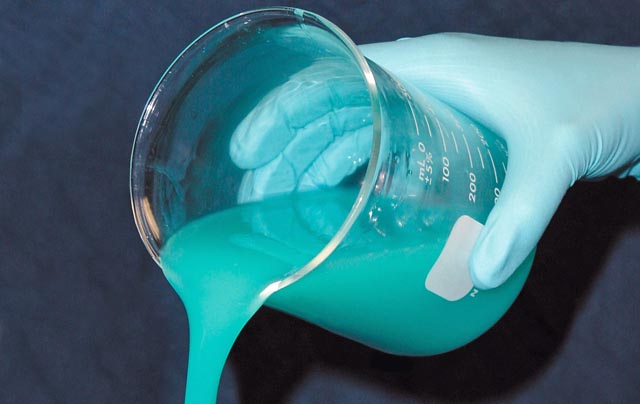Latest research by Norwegian marine insurer Gard looks into the potential hidden costs of synthetic Environmentally Acceptable Lubricants (EALs).
According to Gard, far-reaching financial and environmental consequences can result when a propeller shaft seal failure occurs, and the insurer points to a significant increase in propeller shaft aft seal damage following the 2013 introduction by the US EPA of new Vessel General Permit (VGP) rules. Gard concludes that the increase in the number of seal failures directly correlates with the increase in the use of approved synthetic lubricants – these lubricants are among those in compliance with US EPA regulations.
Gard’s research took a deep dive into the data around the shaftline damage claims it has processed over the last decade. It shows that as many as 80% of the incidents Gard investigated involved stern tube seal failures where an EAL was in use.
Craig Carter, VP Business Development, Thordon Bearings, said: “It appears that the introduction of a synthetic EAL as a means of mitigating the risk of mineral oil pollution has had unforeseen consequences. Seawater alone is the only 100% pollution-free means of lubricating a ship’s propeller shaft bearing.”
Gard’s research has suggested that one reason for the seal failure hike (and consequent increase in insurance claims) is based on the chemical composition of synthetic EALs, which, while being environmentally preferable to the mineral oils that are being phased out, are typically inferior in performance. Gard cites a 2019 study by DNV which discovered that two key features of EALs set them apart from the traditional mineral oils widely used before 2013: viscosity and pressure coefficient.
Under high load operations, such as hard turns at high speeds, EALs can operate with a lower safety margin of the minimum oil film between the propeller shaft and the bearings. Secondly, EALs typically operate with lower viscosity under lower temperatures, in situations like mooring trials and cold start-up. Touched on by Gard, there have been other reports in the international trade press suggesting that the increased incidences of discarded fishing nets or rope are adding to the aft seal damage of oil-lubricated shaftlines.
Carter said: “This research from Gard underscores our own findings that the most environmentally acceptable lubricant is seawater as was recommended by the US EPA in the Vessel General Permit (VGP). Thordon’s Compac bearings are at the heart of our award-winning open seawater-lubricated propeller shaft bearing system, which means zero oil pollution into the marine environment. And let’s not forget any oil leak, big or small, can be catastrophic to the marine environment and marine life, with some EALs found to be only slightly less damaging than the phased-out traditional oils.”
The Compac system eliminates the need for the aft seal, as well as offering reduced friction, hence diminishing fuel burn and main engine emissions. This proven shaftline design also provides improved bearing wear life, predictability and reliability while offering lower maintenance costs, easier installation, and future-proof compliance.



